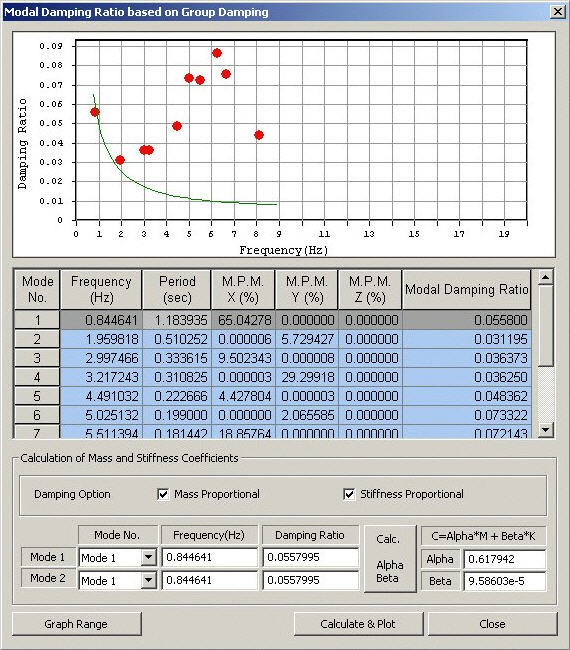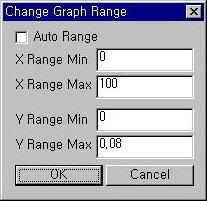Modal Damping Ratio Based on Group Damping
|
|
|
|
|
|
Using the value entered in Model > Properties > Group Damping, damping ratios for individual modes are produced in a graph. |
|
|
|
|
|
|
|
From the Main Menu select Results > Modal Damping Ratio based on Group Damping
Select Results > Modal Damping Ratio based on Group Damping in the Menu tab of the Tree Menu. |
|
|
|
|
|
Calculation of Mass and Stiffness Coefficients
Mass and stiffness proportional damping matrix can be calculated. Depending on the selection of the user, Mass proportional damping, Stiffness proportional damping, or combined Mass & Stiffness proportional damping (so called Rayleigh Damping) can be applied.
Mode1, Mode 2: Select 2 modes for which damping ratios are input for calculating mass proportional and stiffness proportional damping coefficients.
For details regarding the calculation method of Rayleigh Damping, refer to the Analysis Manual.
X Range Min: Minimum value along X-axis
X Range Max: Maximum value along X-axis
Y Range Min: Minimum value along Y-axis
X Range Max: Maximum value along Y-axis
|
|
|

 : Based on the selected modes,
a mass proportional damping coefficient (Alpha) and a stiffness proportional
damping coefficient (Beta) are calculated.
: Based on the selected modes,
a mass proportional damping coefficient (Alpha) and a stiffness proportional
damping coefficient (Beta) are calculated. Specify the range of a graphic
output by entering the maximum and minimum values in X and Y axes.
Specify the range of a graphic
output by entering the maximum and minimum values in X and Y axes. 
 Using the calculated Alpha
and Beta, the Rayleigh Damping graph is produced.
Using the calculated Alpha
and Beta, the Rayleigh Damping graph is produced.